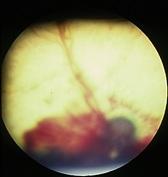

Anticoagulants Īnticoagulants are defined as chronic (death occurs one to two weeks after ingestion of the lethal dose, rarely sooner), single-dose (second generation) or multiple-dose (first generation) rodenticides, acting by effective blocking of the vitamin-K cycle, resulting in inability to produce essential blood-clotting factors-mainly coagulation factors II ( prothrombin) and VII ( proconvertin). Poison baits infused with peanuts to attract rodents. This phenomenon of poison shyness is the rationale for poisons that kill only after multiple doses.īesides being directly toxic to the mammals that ingest them, including dogs, cats, and humans, many rodenticides present a secondary poisoning risk to animals that hunt or scavenge the dead corpses of rats. Rodents are disinclined to gorge on an unknown food (perhaps reflecting an adaptation to their inability to vomit), preferring to sample, wait and observe whether it makes them or other rats sick. Some rodenticides are lethal after one exposure while others require more than one. Despite the crucial roles that rodents play in nature, there are times when they need to be controlled.


While commonly referred to as " rat poison", rodenticides are also used to kill mice, squirrels, woodchucks, chipmunks, porcupines, nutria, beavers, and voles. Rodenticides are chemicals made and sold for the purpose of killing rodents. Typical rat poison bait station (Germany, 2010)


 0 kommentar(er)
0 kommentar(er)
